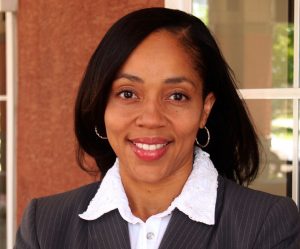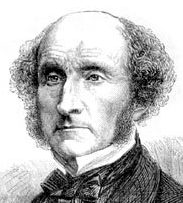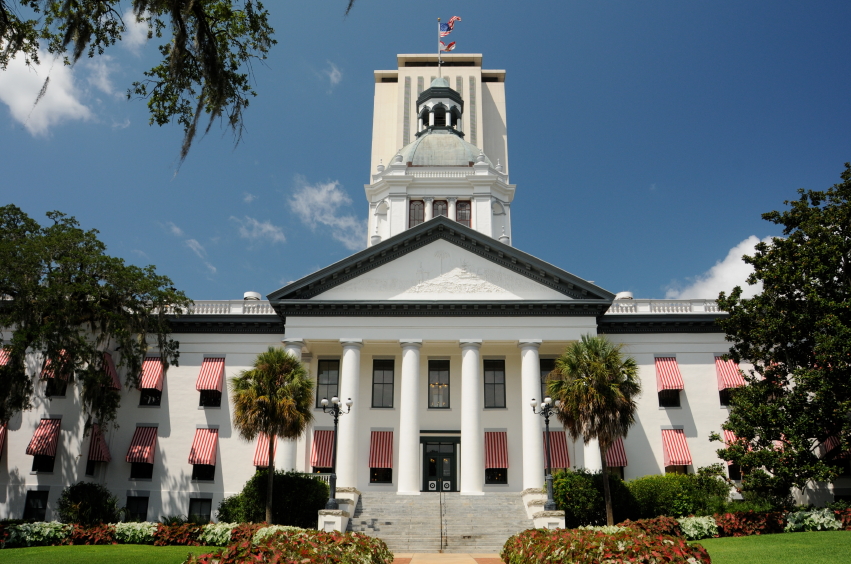The Florida Constitution provides that “[t]he legislative power of the state shall be vested in a legislature of the State of Florida.” So, does a Florida state attorney have the power to change that law? Florida prosecutor Aramis Ayala apparently thinks so. She decided that she will never seek the death penalty in any capital murder case in Osceoloa and Orange counties, where she serves.
This is not a debate about the death penalty. We assume Ms. Ayala has sincere reasons why the death penalty should never be imposed. She may find the death penalty repugnant for a variety of sound reasons. And she is certainly entitled to a forum to express her beliefs and to debate them.

Ms. Ayala holds only a public prosecutorial office in Florida. She serves in the executive branch of government. She has specific duties and responsibilities as a consequence of her office. Ms. Ayala has taken an oath as a Florida prosecutor.
But the question is simply this: does the state attorney in Osceola and Orange counties have the right or power to substitute her honest beliefs for those of the Florida legislature? Can she unilaterally change the law? Or is lawmaking the sole province of the Florida legislature? Florida Governor Scott removed her from the case we describe below. And rightly so.
The Allegations in the Murder of Police Lieutenant Debra Clayton
In December, 2016 Markeith Loyd allegedly murdered Sade Dixon, his pregnant girlfriend, in front of her family members. On January 9, 2017, Orlando Police Lieutenant Debra Clayton stopped at a Wal-Mart to buy a few items while on duty. On her way back to her patrol car another shopper approached her and told her that she had seen person matching Loyd’s description at a check-out counter. Lieutenant Clayton called in the sighting and identified that person as Loyd. While Clayton was on the radio with the dispatcher, three gunshots rang out. The call then went dead.

A surveillance camera captured the entire scene. Lieutenant Clayton approached Loyd outside the Wal-Mart. Clayton pulled out her weapon. Loyd ran and she chased. Loyd, wearing a bulletproof vest, circled around her while pulling a handgun from his waistband. He took cover behind a concrete pillar. Clayton drew her gun and headed toward the parking lot. But she was unable to reach cover before Loyd fired three shots. One shot hit her in the hip and she fell to the ground. She rolled onto her back. Loyd, instead of leaving the scene, then moved to Clayton, stood over her and fired five more shots as Clayton returned fire. One of Loyd’s shots fatally struck Clayton in the neck.
A second police officer followed Loyd as he fled. The officer tracked Loyd to an apartment complex. There, Loyd fired at the second officer, striking his vehicle but missing the officer. Loyd escaped, and was captured days later.
As described by Orlando Police Chief John Mina, “I have seen the video of Markeith Loyd executing Lt. Debra Clayton while she lay defenseless on the ground. She was given no chance to live.”
The Florida Criminal Statutes
In Florida, an individual who resists a police officer by killing the officer is guilty of murder.[note]Florida Statues Title XLVI, Crimes Section 782.04[/note] A person convicted of such a capital felony “shall be punished by death. . .”[note]Florida Statutes Title XLVI, Crimes Section 775.082.[/note]
These statutes are straightforward. They are unambiguous. The video in Lt. Clayton’s murder (which we have not seen) apparently depicts the brutal, execution-style murder of a police officer. Loyd fled, took cover and fired at Clayton. After wounding her, he approached her while she lay on the ground, firing at he five more times until killing her. It is not a stretch to suggest that these facts support a request to a jury for imposition of the death penalty.
Prosecutorial Discretion or Abrogation of Duty? A Florida Prosecutor Run Amok
Ms. Ayala decided that she would not pursue the death penalty in the murder of Lieutenant Clayton. Whether we agree with that decision or not within the confines of the case, that’s certainly within her prosecutorial discretion.
But Ms. Ayala went well beyond the specific facts of the case of Markeith Loyd. The Florida prosecutor also announced that she would not pursue the death penalty in any other case. “I have determined that [using my prosecutorial discretion in death penalty cases] . . . is not in the best interests of this community or the best interest of justice.” As a consequence, she indicated that she intended to file a notice to withdraw the intent to seek the death penalty in all other cases within her jurisdiction that have not yet gone to trial.
Ms. Ayala believes that capital punishment is a failed policy. She believes application of the death penalty is inconsistent. She concluded that the protracted length of the appeals process deprives the victim’s families of closure. “It’s become clear that pursuing death-penalty cases is not the best interest of victims’ families or justice.”
Ms. Ayala’s policy conclusion is that “Florida’s death penalty has been the cause of considerable legal chaos, uncertainty and turmoil.” And it is true that aspects of Florida’s death penalty law, and its application, have created legal issues, even to the point of involving the U.S. Supreme Court. However, any changes to the Florida law are the sole prerogative of the legislature, subject to review by the courts.
A Florida Prosecutor Making Policy Decisions – Invading the Province of the Legislature
We listened to Ms. Ayala’s entire oral explanation behind her decision. You can hear it here. She has made wholesale policy judgments. She has determined, after thorough reflection, to eliminate the Florida death penalty law in her counties of jurisdiction.
The fact that Ms. Ayala made a detailed policy analysis to reach her conclusion of widespread application makes clear that she is not entitled to make a detailed policy analysis in the first instance. Policy decisions are the sole responsibility of the representatives of the people of the State of Florida. The Florida Constitution granted that power to Florida’s legislature. Not to lawyers employed merely to enforce Florida’s laws. Indeed,
the primary role of the State Attorney is to represent the State of Florida in the criminal court system. The State Attorney reviews criminal investigations conducted by law enforcement, decides if criminal charges are necessary and then presents the cases in criminal court.
Florida’s laws are detailed and specific regarding the powers of a state attorney.[note] See Title V, Judicial Branch, Chapter 27, Part II, State Attorneys.[/note] The legislature did not grant any policy-making powers to a state attorney.
Under Florida law the power to create a death penalty law resides with the legislature. And the power to remove that law rests with the legislature.
Ms. Ayala had a simple choice as a Florida prosecutor. Enforce the laws of the State of Florida. If her conscience prevents it, then resign. But she chose to arrogate powers that belong to the people’s representatives. Florida’s governor was right to remove her from the Loyd case. If she fails to pursue the death penalty in other appropriate cases, she should be replaced.

